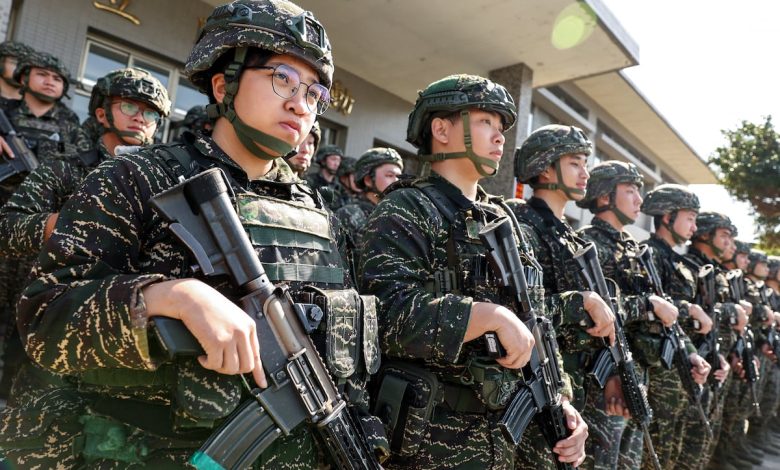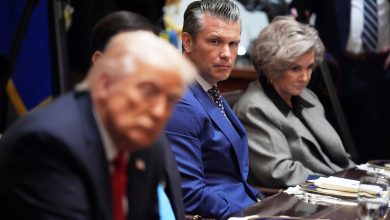Taiwan’s military reform is failing where it matters most

When young conscripts in Taiwan refer to themselves as “cannon fodder,” it signals a crisis in trust that the government must not ignore. Taiwan’s government changed the duration of its mandatory military service from four months to one year beginning in 2024. A year into the reform, the Ministry of Defense admitted that it was falling behind schedule in training conscripts. Meanwhile, conscripts have shown growing dissatisfaction with the current system. Taiwan should seek a better and more efficient system based on its existing ROTC program, taking inspiration from the U.S. ROTC and Switzerland’s military service system.
One year after the conscription reform implementation, Taiwan’s military faced several setbacks in the enactment of its plan. According to a 2024 report by the Washington Post, Defense Minister Wellington Koo acknowledged that equipment and instructor shortages have delayed plans to improve training for reserves. In 2024, only 6% of conscripts eligible for the one-year military service chose to enlist, with most choosing to defer service to attend university. Due to the small intake of one-year conscripts, drones, surface-to-air Stinger missiles and antitank rocket training was postponed for the cohort.
These disappointing results demonstrate that without properly addressing systemic flaws within the military and the conscription system at large, reform efforts could fail. The conscription reform has demonstrated that systemic issues have had a negative effect on the military conscription system. Taiwan’s military personnel fell from 165,000 in 2022 to 153,000 in 2024.
RELATED
Meanwhile, conscripts are seen as temporary helping hands for full-time military staff; thus, one of the main reasons for the decrease in military training is understaffing and a lack of instructors. The military’s staff and instructor shortages could be addressed by either hiring veterans to act as instructors or enabling a path for conscripts in the final stages of conscription to teach new conscripts basic training skills.
Additionally, the alarmingly high suicide rates in Taiwan’s military have shaken public trust in the military. According to an exclusive report by the Reporter, from 2016 to 2024, 134 deaths of military personnel by suicide have been recorded. The report indicated that overwhelming workload and understaffing had a tremendous psychological impact on soldiers. Legislator Wu Szu-Yao pointed out that the ratio of “full-time psychological counselors with professional certificates” to all personnel was 1:2318. This begs the question: If soldiers cannot fight the psychological battle, how would they be able to fight an external enemy? Thus, to build trust and resilience, Taiwan should seek inspiration from its democratic partners for a more effective conscription system.
The Reserve Officers’ Training Corps (ROTC) in the U.S. and Switzerland’s mandatory military service are excellent models to take inspiration from. Taiwan already has a ROTC program, which was introduced by the Ministry of National Defense (MND), but it remains fairly limited in scope compared to the U.S. model. According to TVBS, the MND has signed agreements with 11 education centers and 129 schools, targeting recruitment of those aged 18 to 26. The program requires a commitment to serve in the military for five years upon graduation in exchange for three years of financial aid plus stipends during the participant’s education. Under the current ROTC program, cadets can attend civilian universities and attend regular classes, while also undertaking military training such as weekly military courses and military training during winter and summer breaks. Graduates from the program are assigned the rank of second lieutenant and receive specialized military training after graduation.
Taiwan’s MND should leverage the program by expanding and making it more flexible, such as giving the option for conscripts to choose, after college graduation, whether they wish to remain in the force or not. For those who desire to join the military, the MND could continue providing stipends and financial aid for their studies, while those unwilling to commit to the military after graduation would be limited to the usual stipend paid during military conscription.
Some might criticize the lack of military discipline that the ROTC program would bring to conscripts. A solution to this issue would be to conduct a basic training camp, similar to the ones regular conscripts go on, which could take five weeks. After graduating from basic training, conscripts could attend university while enrolled in the ROTC.
Taiwan could develop two pathways for Taiwanese male students as an alternative to the one-year military service, which would be applicable for both those who want to study in domestic and international universities. This reform would be crucial to reduce the personal, academic, and professional toll that one year of military service would take on conscripts and would accommodate those with academic ambitions domestically and abroad.
For the former, Taiwan could adopt the current U.S.-based ROTC model to replace the one-year conscription system. Students would attend weekly classes on ethics, tactics, leadership and military science alongside academic courses, regular physical training, summer camps, and field training exercises. Upon graduation, students could be committed to serving in the military for a specific time or join the reserve.
Meanwhile, students who choose to further their education abroad could opt for a digital curriculum, participating in online military education programs mirroring the domestic ROTC route. To complement their online learning and maintain physical conditions, intensive-mandatory training sessions would be required during academic breaks. Upon graduation, these students could potentially choose to join the active-duty service or participate in the reserve program.
Strengthening the training of reserve forces is equally important. Similarly to Taiwan, the Swiss army is made mostly of its conscripts, with men instantly joining the reserve after military service, but the Swiss reserve forces are regularly obligated to participate in periodic retraining courses. Taiwan’s military personnel are currently backed by a large reserve force of 1.66 million which could benefit from periodic retraining courses akin to the Swiss model.
According to Article 58 of the Swiss Constitution, every citizen must take on public duties to serve their community. The duty to serve is deeply ingrained in Switzerland and is a crucial part of its society. In contrast, Taiwanese society lacks a consensus on the effectiveness of the conscription system and lacks trust in the military. Revamping mandatory military service to be more flexible would improve public perception of the military.
Incorporating the U.S. and Swiss models could provide long-term benefits for young Taiwanese men in terms of their personal, academic and professional development, as it enables them to balance their personal plans with the duty to their country.
Taiwan has a long path to effectively reforming its conscription system. This comprehensive reform should appease conscripts’ anxieties and improve the conscription system’s structure by taking inspiration from the U.S. and Switzerland. To ensure young citizens are willing and ready to serve, Taiwan must change its approach to the conscription system as an opportunity for conscripts’ development. A smart conscription system is not only about defense but also about empowering Taiwan’s future.
Patrick Ko is a policy analyst at Safe Spaces, a policy consulting firm based in Taiwan and Washington, D.C. His work focuses on East Asian and Latin American international affairs.







